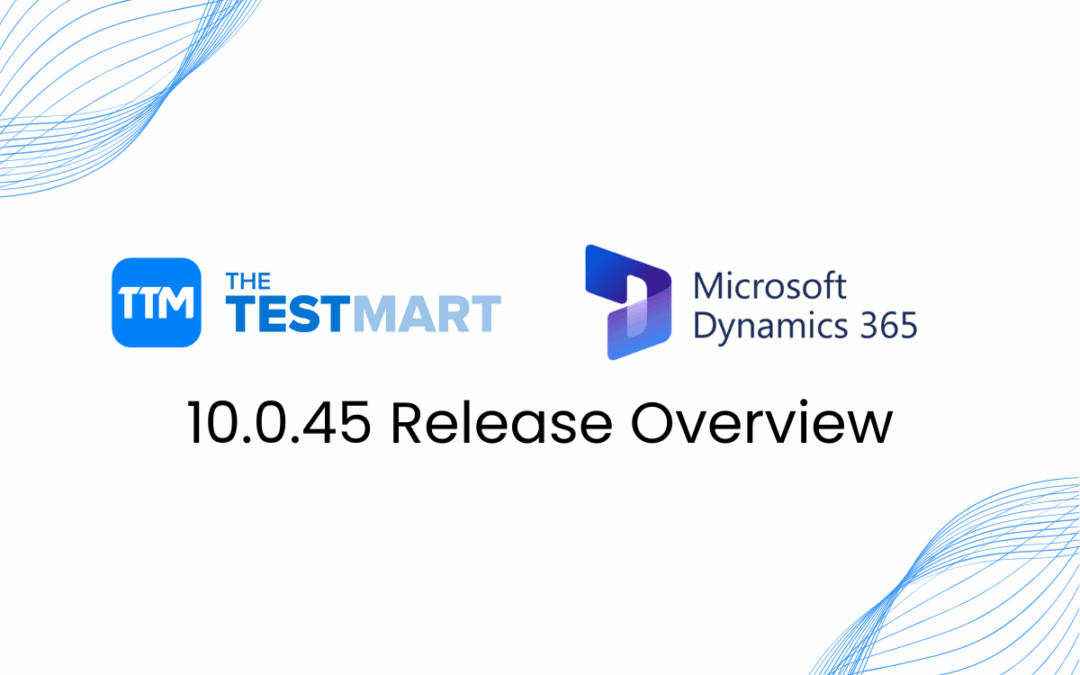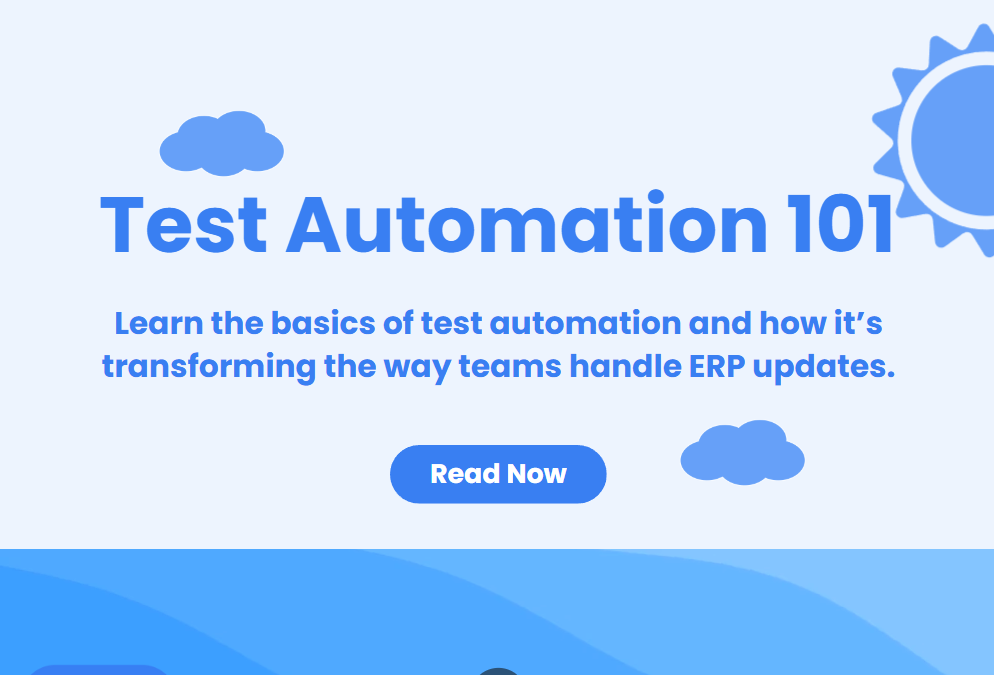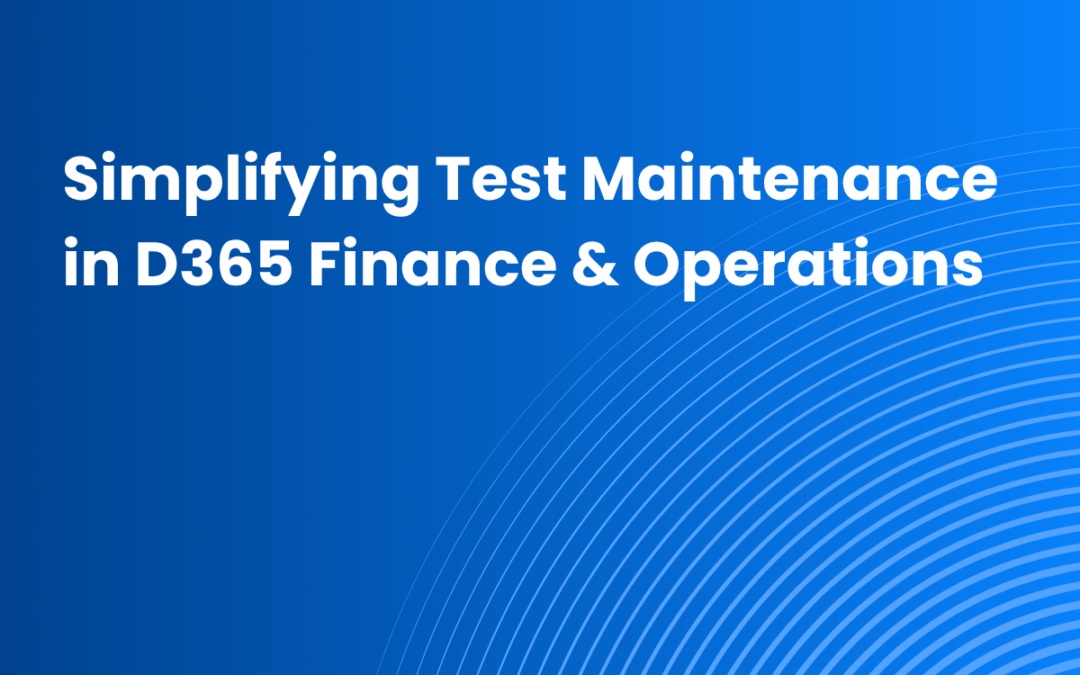A guide for manufacturers, distributors, and ERP-driven teams running on D365
Implementing or upgrading Microsoft Dynamics 365 is a major undertaking. Whether you are a food distributor managing inventory and compliance or a manufacturer coordinating production across sites.
But no matter how much you invest in licenses, consultants, or change management, one overlooked element continues to derail go-lives and slow down digital transformation. Testing.
At TheTestMart, we have worked with dozens of teams across industries like manufacturing, logistics, and retail who struggled with quality assurance during D365 projects. Many made the same avoidable mistakes.
If your organization is using Dynamics 365 Finance, Supply Chain, or Business Central, here are the top 10 ERP testing mistakes to avoid.
1. Treating Testing as a Final Phase Instead of an Ongoing Process
ERP testing should not start three weeks before go-live. In D365, where features are updated continuously and environments are often deployed iteratively, testing needs to begin early and run in parallel with development.
Tip: Adopt a continuous testing model to align with Microsoft’s service updates.
2. Relying Solely on Manual Testing
Manual testing is not just time-consuming. It is unsustainable in a cloud-based environment. Dynamics 365 updates frequently, and without automation, your QA team cannot keep up with regression testing.
Impact: We have seen clients reduce test cycle time by up to 90 percent by automating core workflows.
3. Failing to Test Real-World Business Scenarios
Testing isolated modules like Accounts Payable or Sales Orders is not enough. You need full end-to-end tests for workflows like Order to Cash, Procure to Pay, or Pick Pack Ship. Especially when those workflows span multiple modules in D365.
D365 Example: Sales Order flows from D365 Commerce through to Finance and Operations. Test the entire chain, not just the forms.
4. Ignoring Integration Testing Across Systems
Most D365 deployments are not isolated. You have likely got integrations with WMS, CRM, EDI, Power Platform, or legacy systems. Not validating these connections leads to data sync issues and post-launch chaos.
Risk: A broken pricing sync or inventory integration can grind your operations to a halt.
5. Not Involving Business Users in the Testing Process
Your QA team can validate forms. But business users know what a successful workflow looks like in their department. Involving them helps catch misconfigurations and ensures usability.
Solution: TheTestMart makes it easy for business users to participate in testing. No code required.
6. Underestimating the Impact of Microsoft Updates
Microsoft pushes regular platform and service updates across D365. Without proactive regression testing, even minor changes can break customizations, workflows, or reporting logic.
Real-world example: One client’s invoice automation failed after a platform update because the updated field mapping was not caught.
7. Neglecting Data Quality in Test Environments
Testing with outdated or unrealistic data sets leads to false positives. D365 data structures are complex including ledger setups, inventory dimensions, and tax rules. They must reflect real business scenarios to test effectively.
Tip: Refresh test environments regularly and validate data inputs before running automated tests.
8. No Centralized Test Management or Documentation
Scattered Excel sheets and tribal knowledge slow everything down. Without a centralized, version-controlled test library, D365 testing becomes inconsistent and hard to scale.
Fix: Centralize your test library in a platform like TheTestMart that supports documentation, versioning, and collaboration.
9. Skipping Performance and Load Testing
D365 environments especially those supporting high-transaction volumes like retail or distribution can become unstable under load. Skipping performance testing means risking slow response times during peak operations.
Scenarios to test: Large order uploads, warehouse allocations, month-end financial posting.
10. Lacking an Automation Strategy Built for D365
Generic test automation tools often fail with D365’s UI complexity, security roles, and frequent updates. You need an ERP-specific platform that understands Dynamics objects and can evolve with Microsoft’s roadmap.
TheTestMart is purpose-built for automated Dynamics 365 testing. Fast to deploy, easy to scale, and used by manufacturers, distributors, and logistics leaders.
Final Thoughts
ERP testing is not just a technical step. It is a critical part of business readiness that directly impacts operations, compliance, and user confidence.
Avoiding these common mistakes leads to faster deployments, fewer disruptions, and a more resilient Dynamics 365 environment. Strong testing supports every department that relies on your system to function.
If your organization is working in Dynamics 365 and struggling to keep up with testing demands, TheTestMart provides automated solutions built for real-world ERP complexity. We help you reduce risk and move faster without compromising quality.
Have questions or want to explore a tailored solution?
Contact TheTestMart and talk with our team.





